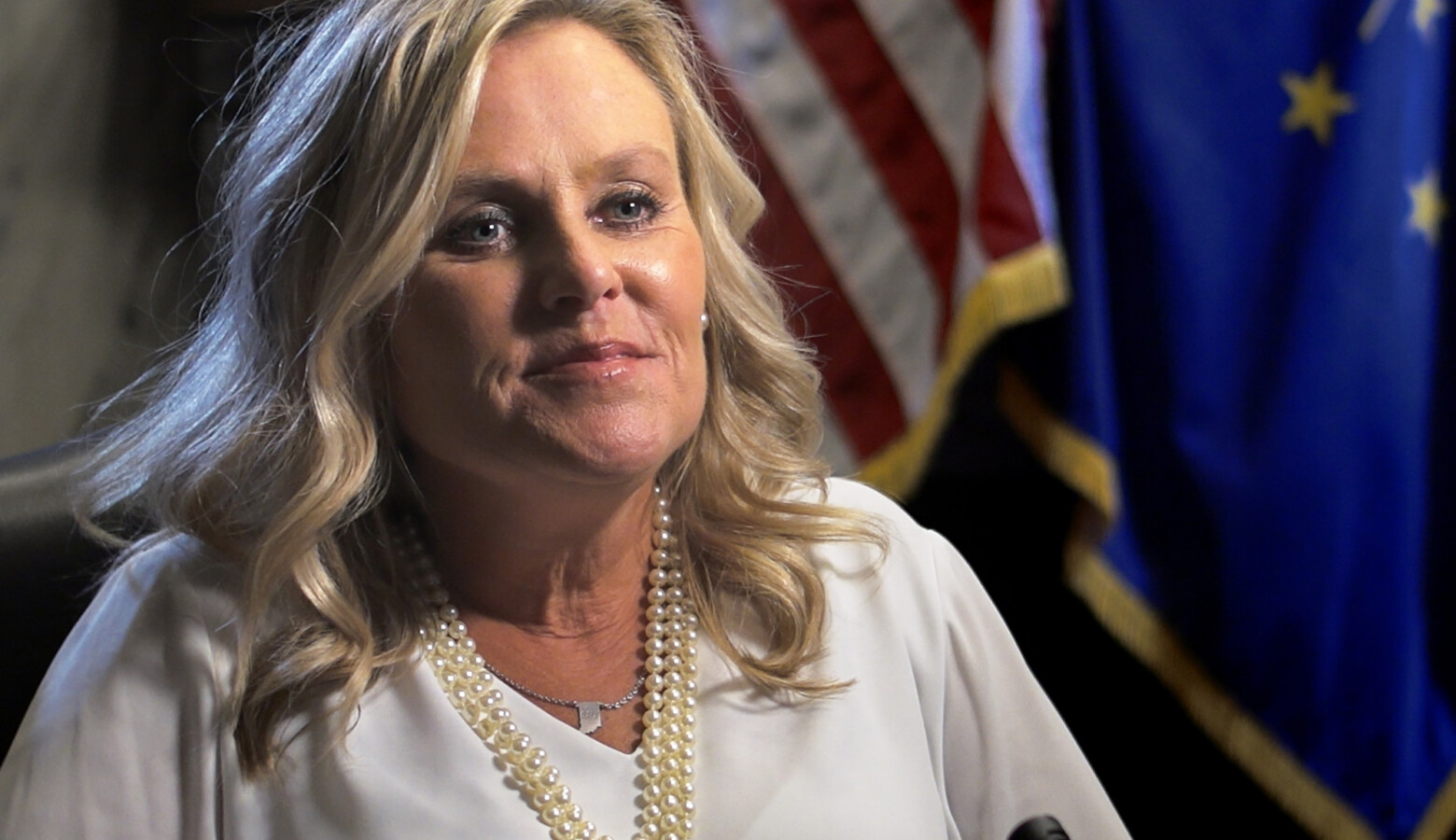McCormick On The 2020 Election: ‘Public Education Is Definitely On The Ballot’

Indiana’s final elected schools chief says that the 2020 election has a lot on the line, especially for education. But she has concerns about the future of the position of the state’s top education official.
Whoever wins the race for governor will appoint an education secretary – shifting away from the previously elected job Jennifer McCormick currently holds. It’s a big change, and McCormick said she hopes whoever gets the job, isn’t afraid to break away from political expectations.
“I think that’s going to be a real stretch, when your job is dependent upon: you get in line, you do what you need to do,” she said.
She also wants whoever is appointed to have recent experience leading K-12 schools, and understand the complexity of how they work – from referendums and reading, to bus evacuations and extracurricular activities.
“That whole spectrum of a conversation is incredibly important in this position – I hope that continues,” she said.
Gov. Eric Holcomb said if he wins re-election, he would want to appoint someone who won’t need additional training and can “hit the ground running,” especially since the transition is happening at such a turbulent time.
“I want to make sure that we’re contributing to confidence and to continuity in terms of this new position, and that they’re seen as a partner,” he said.
Democratic challenger Dr. Woody Myers has said something similar – he’d choose someone with experience leading schools and will continue discussions about how schools should evolve.
“Someone also who’s willing to question how we are doing our work today and whether or not there are better ways to do it in the future,” he said.
Libertarian candidate Donald Rainwater has said whoever holds the position should be familiar with public schools, and unafraid of school choice.
But despite a number of political endorsements – including from McCormick and the American Federation of Teachers – the governor’s race isn’t getting as much attention from the state’s largest teachers union.
The Indiana State Teachers Association’s political action committee has chosen not to endorse any candidate for governor. Instead, the group is focusing on supporting pro-public education candidates in races for seats in the General Assembly.
READ MORE: Can I Vote By Mail? Here’s What You Need To Know For Indiana’s Elections
Join the conversation and sign up for the Indiana 2020 Two-Way. Text “elections” to 73224. Your comments and questions in response to our weekly text help us find the answers you need on COVID-19 and the 2020 election.
Funding
This election is critical for the future of funding at both the federal and state levels. McCormick said, in her mind, public education is on the ballot.
“The presidential election is going to have a huge impact on Indiana as far as funding for K-12. As far as will that money flow away – some of our federal dollars – for public schools,” she said.
Indiana lawmakers will also write the state’s next budget in 2021, after the pandemic has hammered the state’s reserves and revenue. Lawmakers will have to figure out how to handle funding for schools that have had most or all students learning virtually because of health and safety concerns.
With more than half of the state’s budget rooted in education spending, McCormick said it could be a likely target for cuts come January.
But maintaining and even increasing funding levels is essential to address a number of challenges for communities across the state: like internet connectivity and access; diversifying the state’s teaching workforce and addressing the ongoing teacher shortage; and providing support to the most vulnerable students.
“I would argue we are struggling with that – we have districts that maybe don’t have chemistry, or they don’t have physics, or they don’t have a quality reading specialist at their elementary or they don’t have social workers, they don’t have school counselors,” she said.
Assessments and the future of policy
McCormick said the outcome of the presidential election will also have a clear effect on issues beyond funding. That includes things like school choice, standardized tests and curriculum priorities.
One of the biggest questions for schools as the academic year goes on, is how standardized testing can and should operate with COVID-19 continuing to disrupt operations.
Earlier this year, the federal government waived testing requirements as schools nationwide closed their doors because of the pandemic. McCormick said the Trump administration has indicated there won’t be a waiver for testing this upcoming spring.
But that could change if leadership does – Biden has said in the past he would ban standardized testing.
Contact reporter Jeanie at jlindsa@iu.edu or follow her on Twitter at @jeanjeanielindz.

